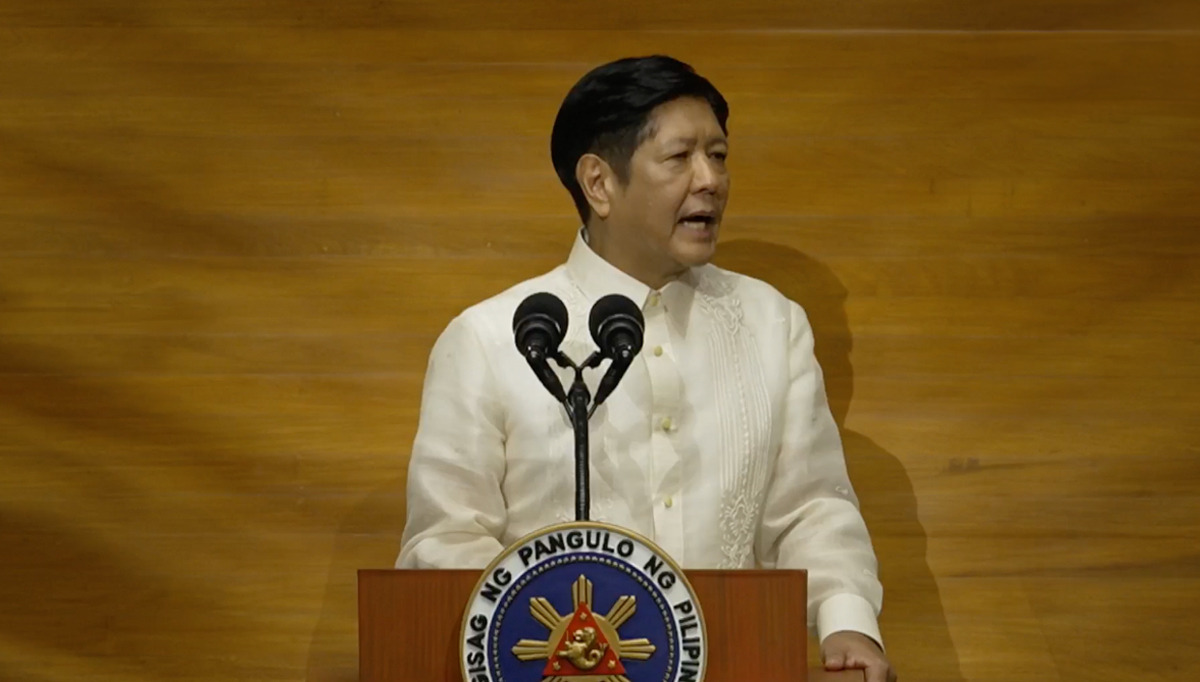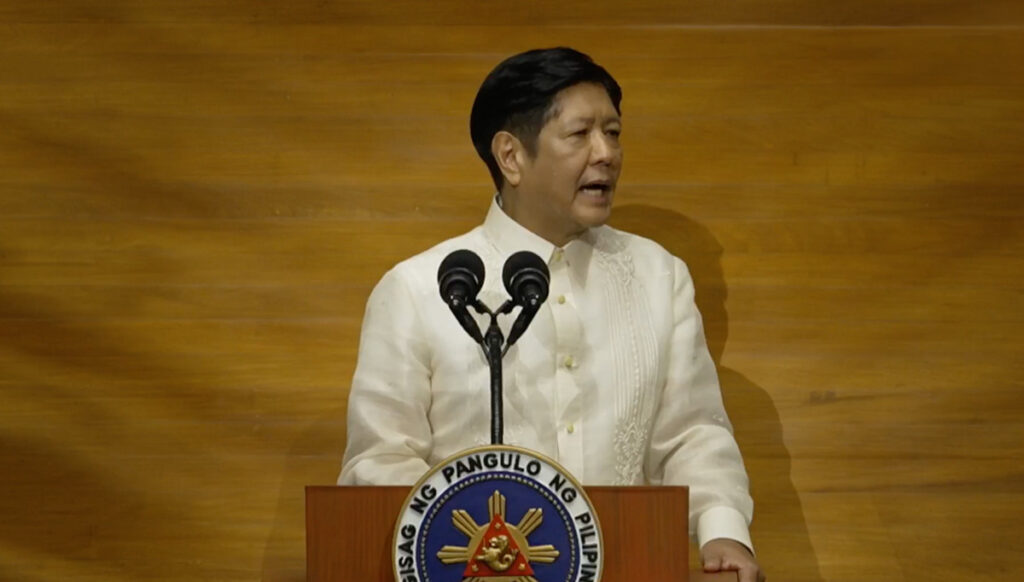
Screenshot from RTVM/LIVE
MANILA, Philippines —The Philippines’ ownership of the West Philippine Sea is not an imagination but a reality that will stay forever, President Ferdinand Marcos Jr. said during his third State of the Nation Address (Sona).
Marcos’ remarks about the WPS in his speech on Monday drew a standing ovation from lawmakers and guests, after he insisted that the Philippines will continue to own the region as long as Filipinos love their motherland.
“The West Philippine Sea is not merely a figment of our imagination. It is ours. And it will remain ours as long as the spirit of our beloved country, the Philippines, burns brightly,” Marcos said in Filipino.
READ: Philippines ‘to assert our rights’ after China sea deal
“We will strengthen and expand the awareness and knowledge of the entire nation, and we will ensure that it is passed on to our youth and future generations,” he said.
Marcos also appeared emotional while thanking the Armed Forces of the Philippines, the Philippine Coast Guard, and the country’s fisherfolk for their sacrifices in guarding the country’s territory.
READ: Philippines, China reach ‘arrangement’ for reef resupply missions
“To our entire Armed Forces, the Coast Guard, and our fishermen in the West Philippine Sea, accept the heartfelt gratitude of the entire nation for your vigilance and sacrifices,” he said.
Disputed region
Marcos has adopted an independent foreign policy where the government maintained a strong stance on owning the disputed region. Over his term, Chinese aggressive action led to different water cannon attacks, vessel collisions, and even an illegal boarding incident that injured a Filipino Navy officer.
READ: West Philippine Sea: Chinese ship spotted near Lubang Island
Without naming China, Marcos said the Philippines would continue to “find ways to de-escalate tensions in contested areas… without compromising our position and our principles.”
“The Philippines cannot yield. The Philippines cannot waver,” Marcos said.
READ: China hypersonic missile attack: 25 areas in PH possible targets
His remarks came after the Philippines and China agreed to a “provisional arrangement” for resupply missions to Filipino troops stationed at Second Thomas Shoal, which has been the focus of violent clashes in recent months.
Manila is locked in a longstanding territorial dispute with Beijing over parts of the strategic waterway through which trillions of dollars worth of trade passes annually.
Beijing claims almost the entire South China Sea and asserts its stance by deploying coast guard and other vessels to patrol the disputed waters and reefs. Philippine relations with China have been turbulent since Marcos took office in 2022, vowing to defend his country’s claims to the West Philippine Sea.
A series of clashes between Philippine and Chinese vessels at flashpoint reefs have fueled fears of a conflict that could drag in the United States due to its mutual defense treaty with Manila. The pact requires both parties to come to the other’s defense in case of an “armed attack” against vessels, aircraft, military, and coast guard anywhere in the Pacific theater, which Washington says includes the South China Sea.
The Philippines has also deepened defense cooperation with other countries, including Australia, France, and Japan, in the face of China’s growing assertiveness in the waterway. Manila signed a key defense pact with Tokyo this month that will allow the deployment of troops on each other’s territory.
“We are continuing to strengthen our defensive posture both through developing self-reliance and through partnerships with like-minded states,” said Marcos, who received a standing ovation when he declared, “the West Philippine Sea… is ours.”
Manila calls the South China Sea waters to the country’s immediate west the West Philippine Sea.
Beijing has brushed aside competing claims to the South China Sea from several Southeast Asian nations, including the Philippines, and an international ruling that its expansive claims have no legal basis.


